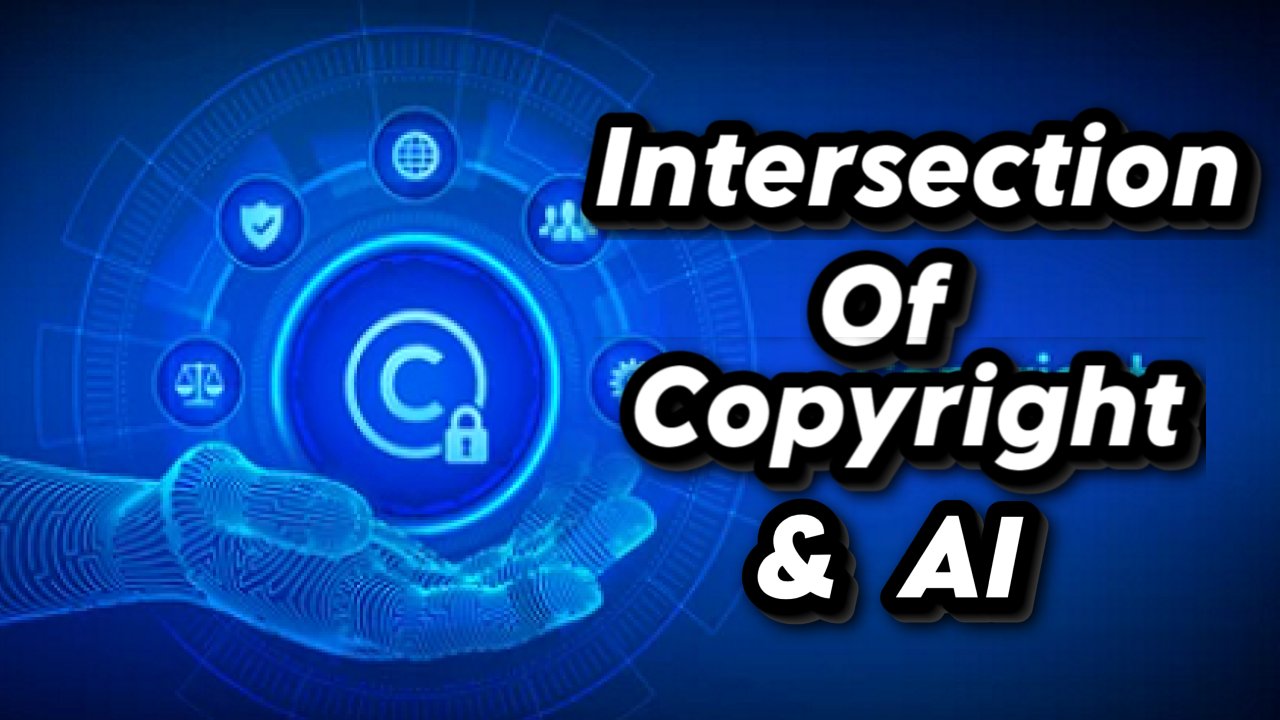The Intersection of Copyright and AI: Navigating Legal Implications and Challenges
This article will help us to understand AI and Copyright how both the mediums are facing implications and challenges related to each other and how they both are different from each other in comparison.

Introduction:
As AI technology continues to advance at an unprecedented pace, it has brought about a new wave of innovation and efficiency across various industries. However, as these two domains converge, the legal complexities at the intersection of AI and copyright law have become increasingly challenging to navigate. This article deals with the constantly evolving landscape of copyright in the realm of AI, providing insights into the legal implications and challenges that arise as this technology continues to transform the way we live and work.
Legal Implication and Challenges
There are some of the implications and challenges related to Copyright and AI are discussed below which will help us to understand easily. Some of the major challenges and implications are as follows:
AI and Copyrightable Creations:
With the advent of machine learning algorithms, AI systems have been playing an increasingly significant role in the creation of original works such as art, music, literature, and software. However, the question of copyright ownership becomes more complex when the creative output is generated autonomously by AI algorithms without any direct human intervention. In such cases, it is unclear who owns the intellectual property rights to the AI-generated works, and whether they should be attributed to the AI or the individuals or organizations that trained the algorithms. This issue raises ethical concerns and has implications for the future of creative industries.
Authorship and Ownership:
Copyright law has always been centred around the concept of human authorship. However, with the advent of AI-generated works, a pertinent question arises - who can be considered the author, and therefore, the rightful owner of the copyright? This issue is further complicated by the fact that certain legal systems mandate the presence of a human author, making it difficult to determine ownership when the creative process is automated.
Works Created by Employees or Contractors:
In today's world, the use of AI by individuals and organizations has become increasingly common. However, a question that arises with this use is who holds the copyright ownership of works generated by AI, specifically those generated by employees or contractors. This is an important issue to consider as determining whether the AI's output can be considered a "work made for hire" adds a layer of complexity to the assignment of copyright. As AI technology continues to evolve and becomes more sophisticated, it is essential to address these copyright ownership concerns to ensure fair and just allocation of rights.
Fair Use and AI:
In the realm of intellectual property, the concept of fair use provides some flexibility in using copyrighted material without the owner's permission for certain purposes such as education and commentary. However, with the advent of artificial intelligence, the transformative nature of AI-generated content raises new questions about the limits of fair use. Policymakers and legal experts may need to re-examine existing frameworks to ensure that they are still relevant and effective in the rapidly evolving technological landscape.
Copyright Infringement and AI:
Artificial Intelligence (AI) systems are designed to learn from vast amounts of data, which can include copyrighted works. However, this can lead to unintentional copyright infringement, which is a growing concern. When an AI system produces content that unintentionally mimics copyrighted works, it raises questions about the liability of both the AI developers and users. This can result in legal challenges and debates over who should be held responsible for the infringement. As AI technology continues to advance, it is important to address these issues and establish clear guidelines to ensure fair and legal use of copyrighted material.
AI as a Tool for Creatives:
As the application of AI in creative processes becomes more prevalent, it has been noted that AI can significantly aid in the generation of content. However, it is imperative to differentiate between the creative inputs of humans and machines. This distinction raises a crucial issue of copyright laws, which may need to be adapted to recognize the collaborative nature of AI and human creators. The revision of copyright laws will ensure that both parties receive equitable attribution and protection.
International Perspectives:
The legal framework governing AI and copyright is complex and varies across different countries. The challenge of harmonizing international standards for AI-generated content is compounded by the fact that different jurisdictions are still grappling with the implications of automated creative processes on established copyright principles. As AI continues to evolve and become more sophisticated, it is becoming increasingly important to address these issues and ensure that copyright laws keep pace with technological advancements.
Emerging Legal Frameworks:
As artificial intelligence (AI) continues to evolve, jurisdictions around the world are grappling with how to address the legal and ethical issues surrounding AI-generated content. Some are even proposing new legal frameworks that would require adjustments to traditional copyright principles. One such proposal is to recognize AI as a legal author, while others suggest granting a form of "neighbouring rights" to AI systems. These proposals reflect the growing recognition that AI is becoming an increasingly important part of our lives and that we need to find new ways to protect the rights and interests of both creators and consumers of AI-generated content.
Conclusion:
The intersection between copyright laws and AI technology presents a multifaceted and ever-changing legal terrain. As AI becomes increasingly involved in content creation, legal frameworks must adapt to address complex issues of ownership, authorship, fair use, and liability. Striking a balance between promoting innovation and safeguarding the rights of creators is a challenging task that necessitates collaboration between legal experts, technologists, and policymakers. As the world navigates this dynamic intersection, the legal implications and challenges will undoubtedly shape the future of AI-driven creativity and its position within the established framework of copyright law.












